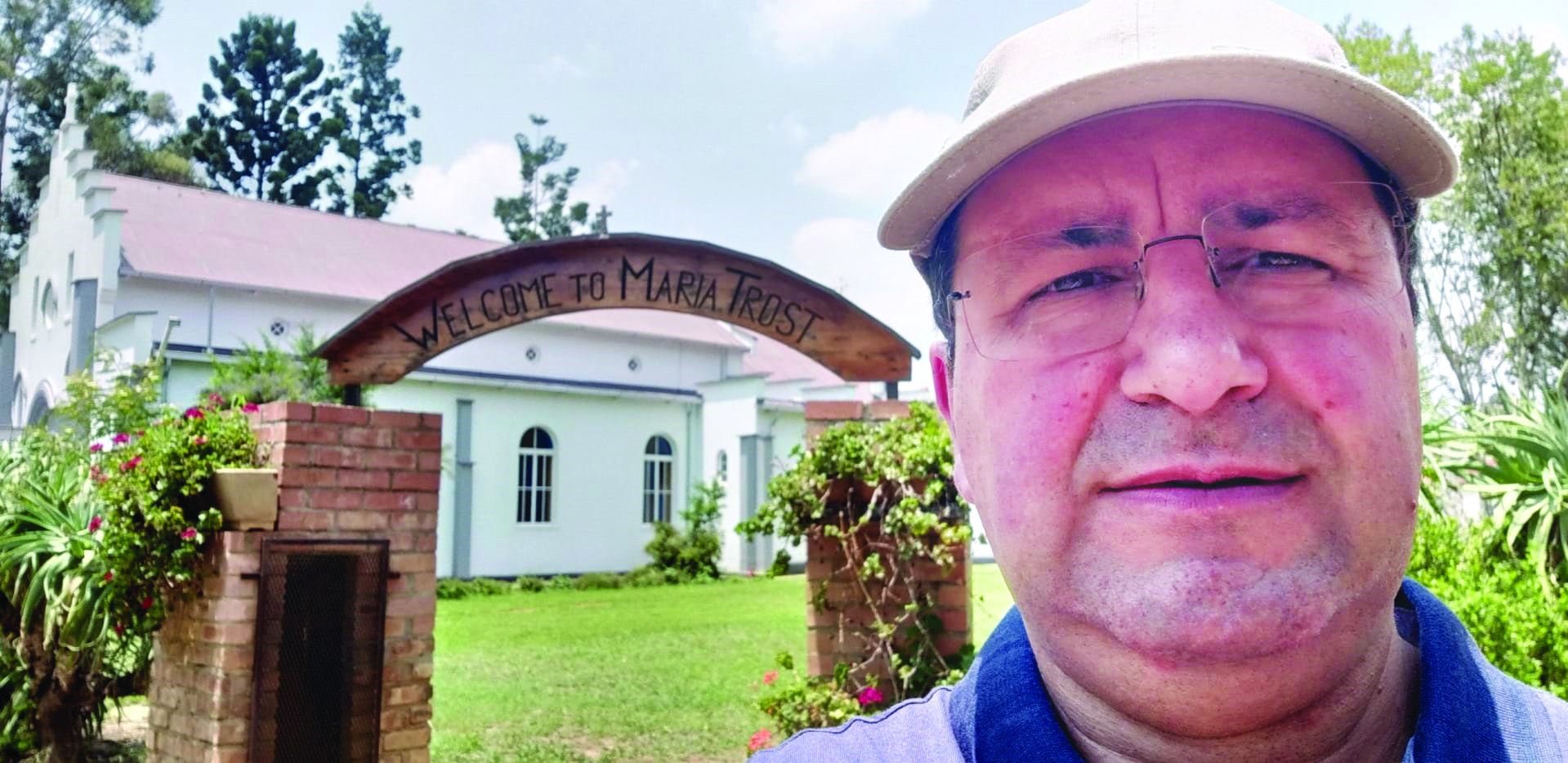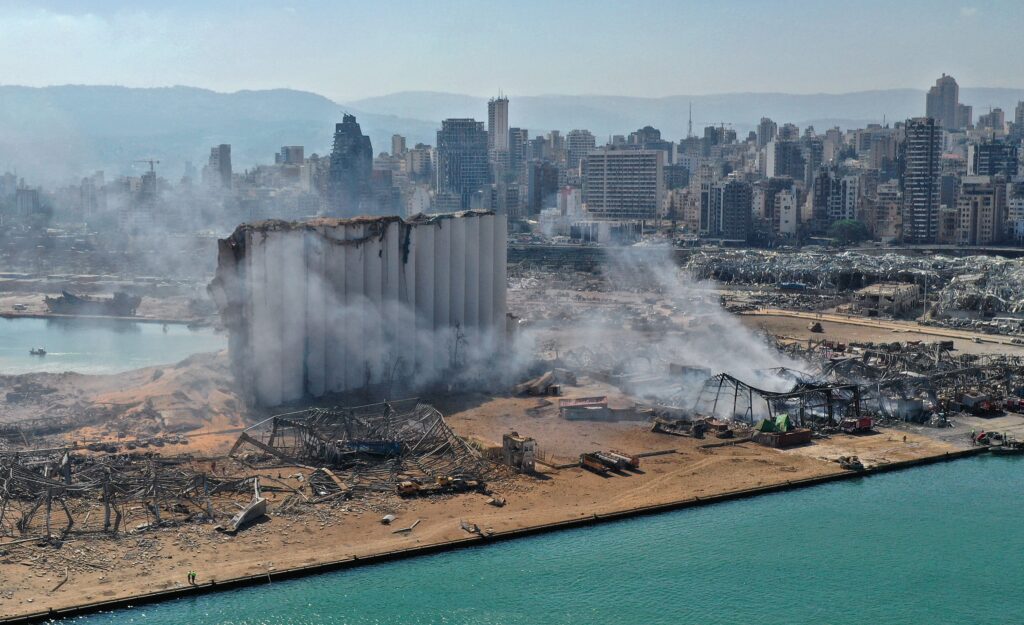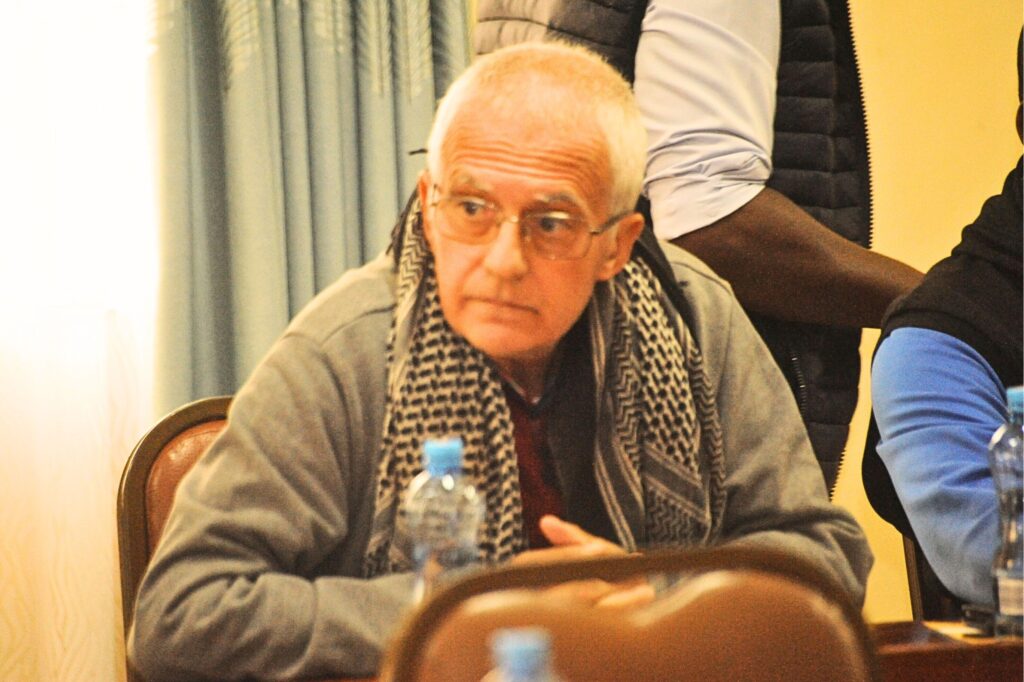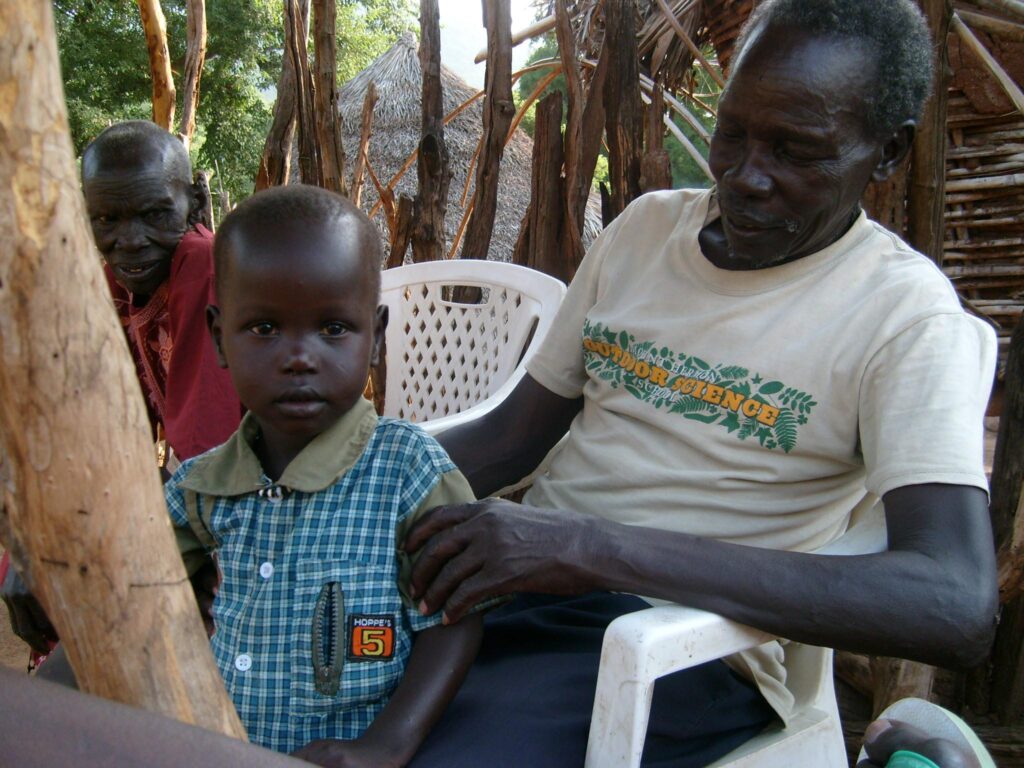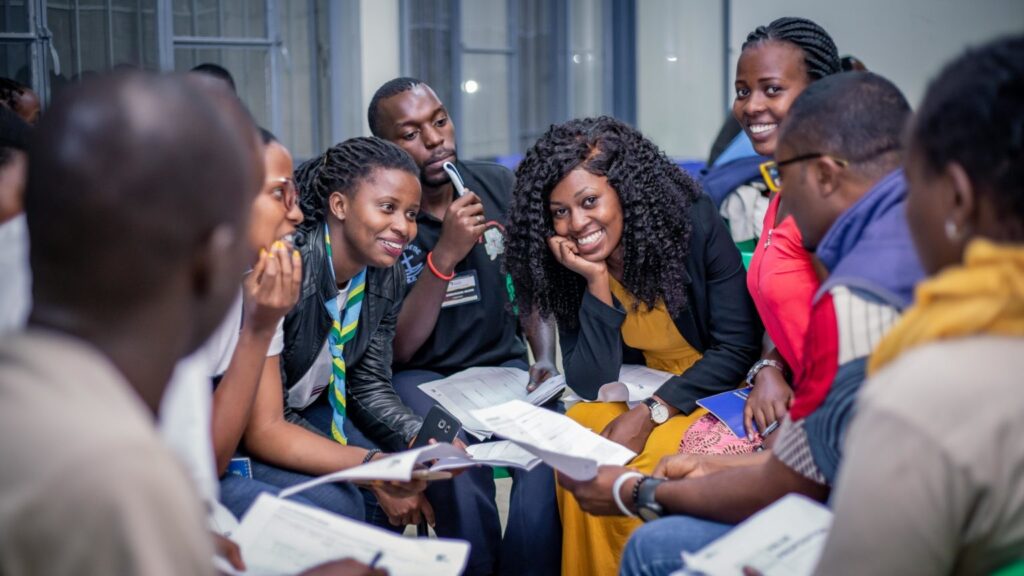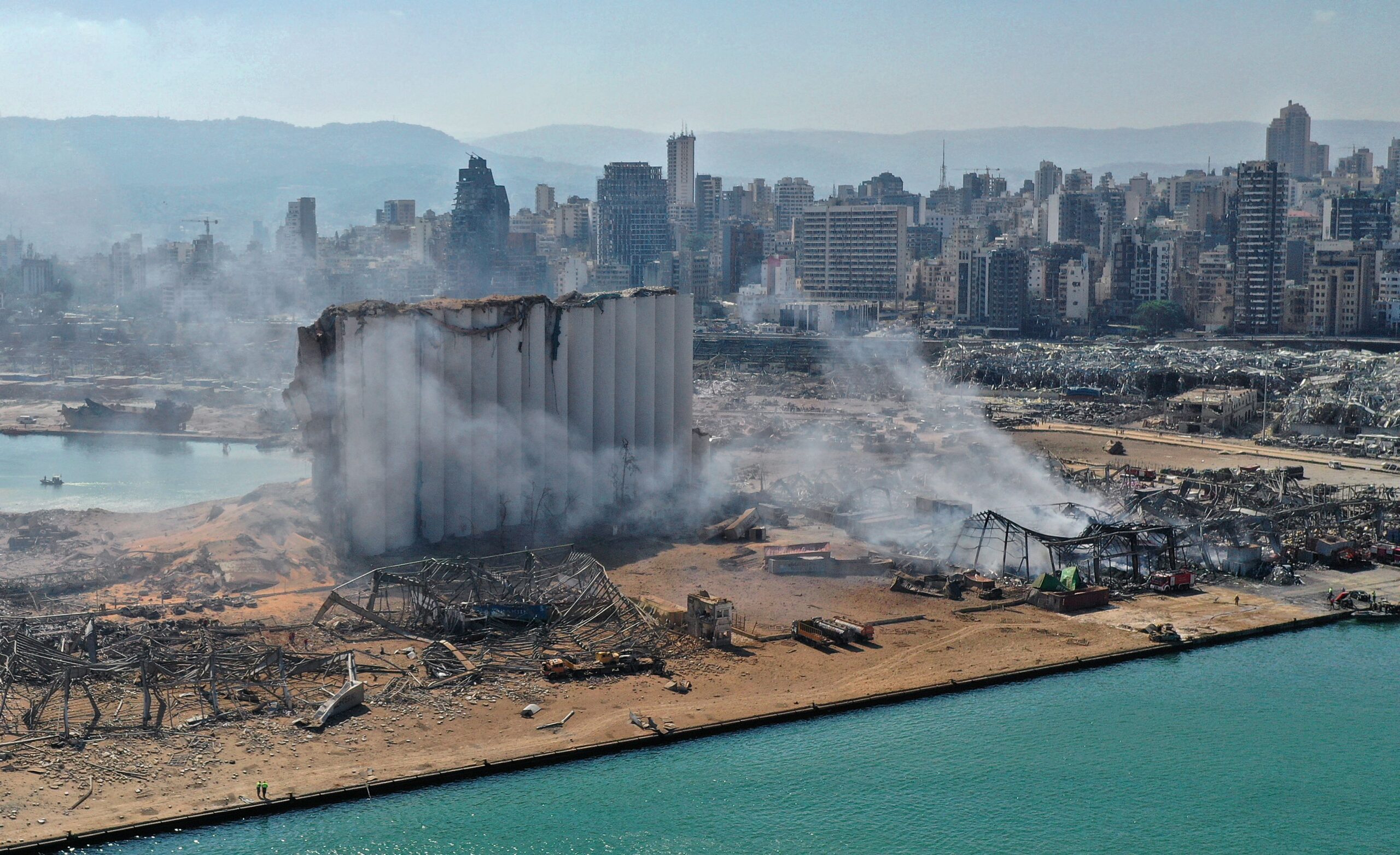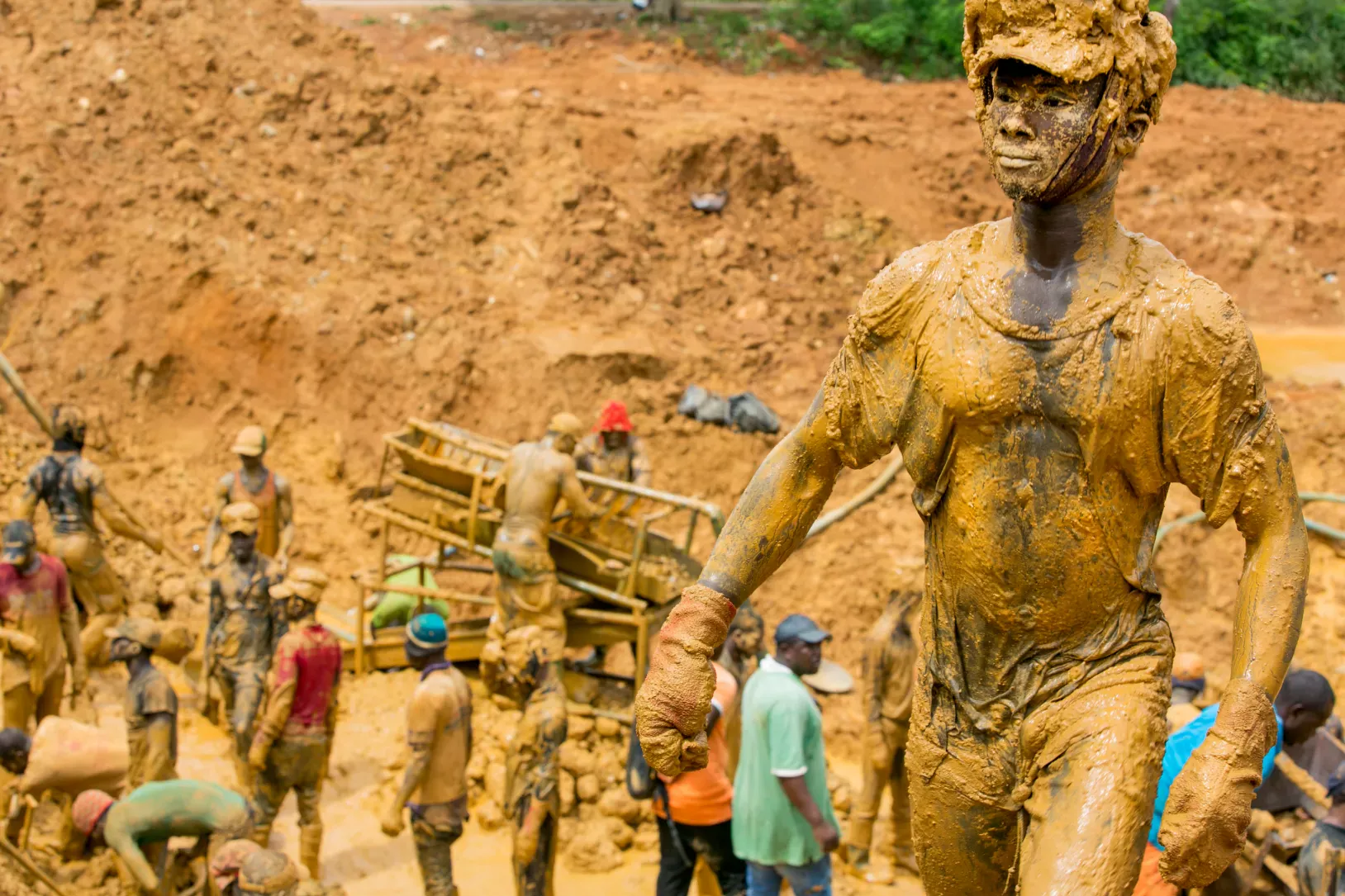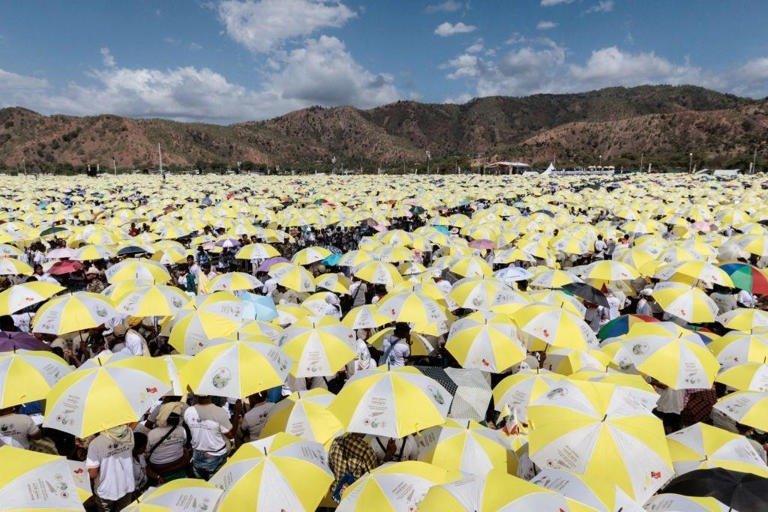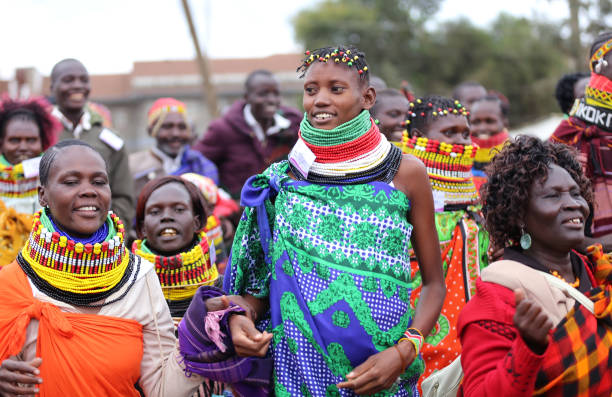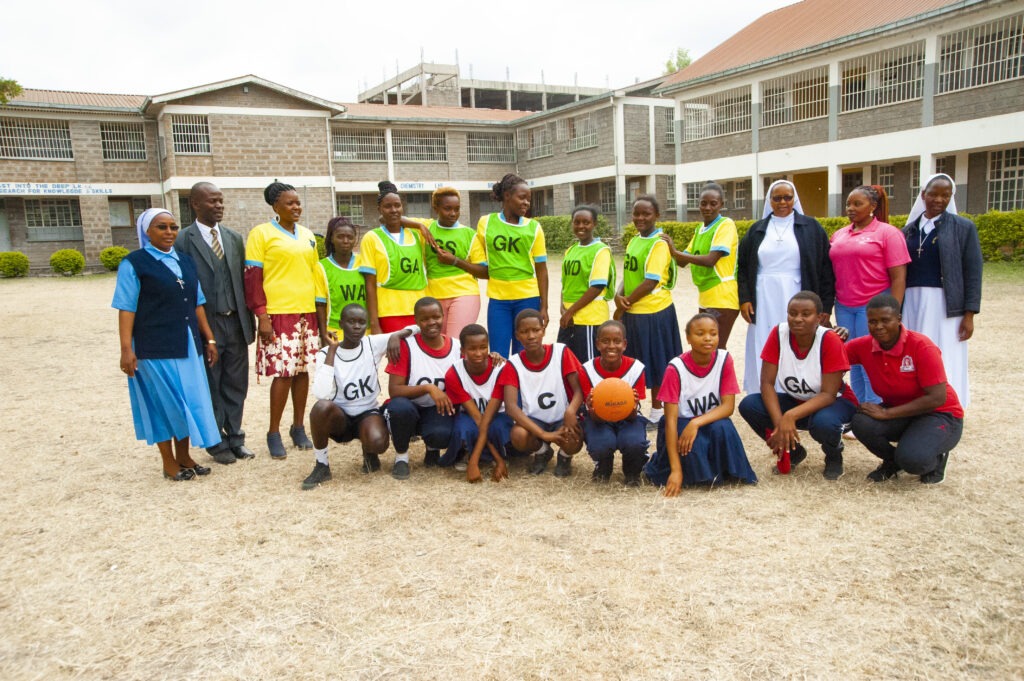There is no ‘buddy’ like a brother. And a Comboni brother is just that: a friend who, after being seduced by Christ and his mission, becomes all things to all people, through his serious profession, his style of life, his concrete gestures, his down-to-earth words… without the need of something ‘sacred’ that puts him above others, if not his love for everyone.
By Paulo Manuel Félix Ferreira
I was born 53 years ago in Marvila, today one of the fastest–growing neighbourhoods of the Portuguese capital. My parents were not originally from Marvilla. My mother came from a village near Fatima, home of the great Marian Shrine, built on the site of the apparitions of Mary, Mother of Jesus, to three young shepherds in 1917. Her family was very poor. Her father worked as a stonebreaker in the quarries near the village, and it was not always easy for him to provide bread for the family.
My father was born in a village 40 kilometres from that of my mother, into a family of small peasants, who depended on subsistence farming. Due to a health problem, he was forced to abandon the work in the fields and look for a job in a bakery located in a nearby village.
Both my parents’ families were deeply Catholic, perhaps a little traditional, but certainly animated by true faith. The many difficulties of life only increased their deep trust in God’s love and mercy.
Love story
To get out of the poverty in which her family was living and to help make ends meet, mum had looked for and found work at the priest’s rectory in a parish near dad’s village. It was here that my father saw her for the first time. He liked her immediately, and began to attend Mass in that parish, until he found the courage to meet her face to face. Great was his joy when she told him that in her, too, the desire to meet and know him better had been born from the first time she had seen him.
Eventually, they got married and began to look for a house. They met a lot of opposition from many tenants. Finally, they managed to find a nest of their own, but a sense of hostility and envy towards them lasted for some time. Their love, however, was stronger than any adversity, and their deep faith and continuous prayer sustained them. In that nest, five children were born: four boys, of which I was the first, and a girl.
Life was certainly not easy in those difficult times for Portugal, and Marvila was not yet the jewel of Lisbon’s East End that it would become a few decades later. But for us, that little house was a queen’s palace. Who was the ‘queen’? My mother. Her faith, her way of living it in everyday life, her way of relating to others – though not all friends – and her constant prayers were the first ‘catechesis’ we children received.
The parish priest often would come to visit our family and take a break in the heavy pastoral activity. One day I heard him tell my father and mother: “You are a model of a Christian family in this difficult environment”. I think he was not simply flattering them.
Two vocations
My parents introduced me to catechism classes as soon as I began school. After Confirmation, I attended Bible classes and joined the parish youth group, in which I had a more personalised experience of Christ and faith in him. Yet, it was only after joining the Scouts that the seed of vocation began to bud up in me. It grew fast, taking the form of a total consecration to God and to others, though I never mentioned it to anyone.
Quite a while later, my younger brother Fernando expressed the desire to become a priest and my parents accompanied him to the seminary of the Comboni Missionaries in Santarém, where they knew a Father who was very good at vocation discernment. I, too, went with them. And it just happened that one of the missionaries who ran the seminary asked me point-blank: “Wouldn’t you, too, like to become a missionary?” It took me a few seconds of reflection to reply: “Of course I would like to”, thus revealing to my parents and brother what I already had in my heart.
Few months later, my brother Fernando joined the Comboni seminary for candidates for the priesthood, in Famalicão (Braga diocese), and I entered the training centre for candidates for missionary brothers at the Comboni Institute ran in Maia, near Porto. I was told that a Comboni brother evangelises though a profession. So, I opted for a three-year course in agriculture, followed by a two-year theology course for lay people.
In 1989, my brother Fernando and I joined the novitiate. In May 1991, we made our first religious profession. Fernando was assigned to the Comboni scholasticate in Lima (Peru) for his theological studies. A few years later, he chose to take another path and left the institute. Yet, he has always remained deeply ‘Combonian’ in spirit, to the point that, some years ago, he began to work in the editorial team of the magazine that Comboni missionaries publish in Portugal.
Doing everything together…
I was sent to Nairobi (Kenya), to the Comboni Brothers’ Centre, to continue my formation. Three years later, on completion of my studies, I returned to Portugal for a short holiday, during which I received a letter from my superiors, assigning me to the Comboni Province of Zambia-Malawi. The School of Arts and Crafts in Chikowa, flagship of the local Comboni mission, on the edge of the South Luwangwa National Park, in eastern Zambia, was going through a difficult period: more brothers were needed, both as instructors of the students and as administrators of the various workshops.
I teamed up with Bro. Francisco Amarante, a Portuguese like me, at first from 1994 to 1998, and then from 2003 to 2007. We formed a close-knit pair, full of enthusiasm. We competed with each other to suggest the best initiatives to involve the students as much as possible. Our main task was to accompany the students who came to our school for courses in agriculture, carpentry and wood sculpture. We wanted the school to be not only a happy island for the boarders and day students, but also a source of hope for the people who lived around us. So, we opened a shop, where we would sell the products of our work at very affordable prices, and a mill where local farmers could come and grind their crops. There was an air of solidarity both in the school and in the nearby villages. And, believe me, it was evangelisation in its purest form, even without particular sermons and liturgies (which, by the way, were brilliantly offered in churches and chapels by the fathers of our community).
… animating the trainers
 Between the two periods of exciting work in Chikowa, there were five years (1999-2003) that I spent at the School of Arts and Crafts of Lunzu, Southern Malawi, created, developed, organised and managed by Comboni Missionaries. Here, I worked with three other Comboni brothers, true artists in their crafts: Konrad Tremmel, from Germany, Gilbert Peterson (from Costa Rica) and Dzinekou Jonas (from Togo).
Between the two periods of exciting work in Chikowa, there were five years (1999-2003) that I spent at the School of Arts and Crafts of Lunzu, Southern Malawi, created, developed, organised and managed by Comboni Missionaries. Here, I worked with three other Comboni brothers, true artists in their crafts: Konrad Tremmel, from Germany, Gilbert Peterson (from Costa Rica) and Dzinekou Jonas (from Togo).
It was a technical school of great success and efficiency, whose aim was to work towards building a better future for the youth of Malawi, offering them training in technical and human skills. Each student leaving the school would have benefited from two years of formal training in carpentry & joinery, or metal work & electrical skills, or shoe making, leading to government trade test certificates. My main duty was to animate the teachers and trainers that formed the teaching staff. I worked mainly on the human formation side of the courses, covering topics such as self-knowledge, group dynamics, civil education, human rights, education in democracy and ethics of work.
“Hey you, be like me”
In 2008, I was called back to Portugal, to exercise my missionary service in the Comboni communities of my country of origin. I was either the local bursar, or in charge of house maintenance. Anywhere I was assigned, I wanted to be part of the missionary animation team that, during the weekends, visited parishes, institutions, movements, and youth groups, organising meetings, seminars and workshops…all aimed at animating the local Church missionarily and awaken the missionary vocation and consecration in young people. Many times, meeting a young man or girl who showed interest in mission, I struck them with the same point-blank question I was asked when I was a boy: “Wouldn’t you like to become a missionary?”
 In 2019, my superiors finally gave in to my constant requests to return to Africa, and I was posted to South Africa, assigned to the parish of Lydenburg, the very first community opened by the Comboni Institute in the country, back in March 1924, and now home of the Pastoral Centre of the Diocese of Witbank. I was made the administrator of the community, with a special duty: to provide a warm welcome to the groups and ecclesial movements that come to the centre for workshops, retreats and various courses. In other words, I am still animating this young local Church to open it up to the rest of the world.
In 2019, my superiors finally gave in to my constant requests to return to Africa, and I was posted to South Africa, assigned to the parish of Lydenburg, the very first community opened by the Comboni Institute in the country, back in March 1924, and now home of the Pastoral Centre of the Diocese of Witbank. I was made the administrator of the community, with a special duty: to provide a warm welcome to the groups and ecclesial movements that come to the centre for workshops, retreats and various courses. In other words, I am still animating this young local Church to open it up to the rest of the world.
As usual, my best ‘past-time’ is to meet young people and tell them that surrendering to Christ is the door to immense joy, and that sharing such joy as a missionary is a type of life worth living and sharing.

